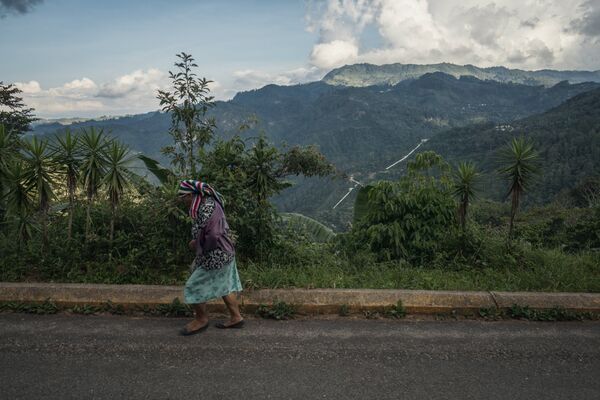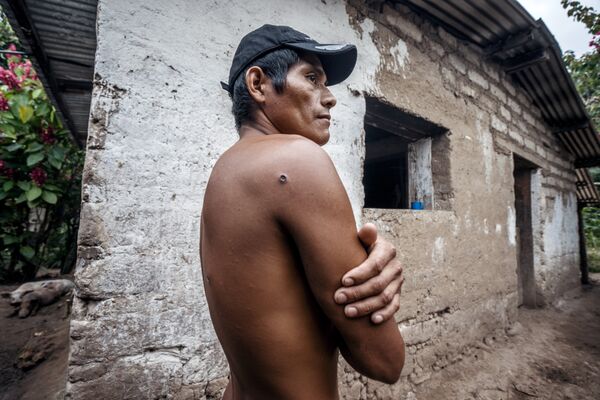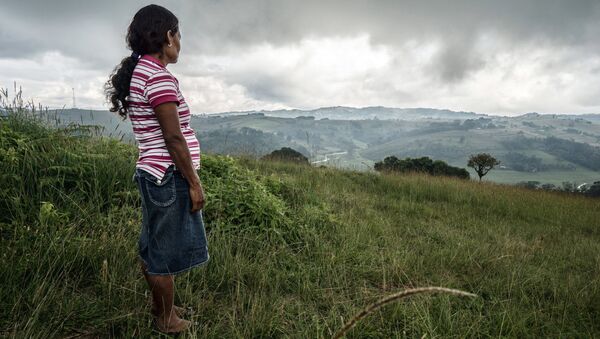The Global Witness report titled, Honduras: The deadliest place to defend the planet, exposes the shocking levels of violence and intimidation suffered by rural communities for taking a stand against the imposition of dams, mines, logging or agriculture on their land.

According to the campaign group, all of these projects are controlled by rich and powerful elites — among them members of the political class. The root causes of these abuses are widespread corruption and the failure to properly consult those affected by these projects, the report states.
#Honduras is the deadliest place to be an #environmentdefender. Our investigation reveals who's behind the killings https://t.co/BrH47BncH8 pic.twitter.com/HNt91VnLys
— Global Witness (@Global_Witness) January 31, 2017
"Nowhere on Earth are you more likely to be killed for protesting the theft of land and destruction of the natural world than in Honduras. 123 land and environmental activists have been murdered in Honduras since the 2009 coup, with countless others threatened, attacked or imprisoned," a Global Witness statement read.

"We have documented countless chilling attacks and threats, including the savage beating by soldiers of pregnant women, children held at gunpoint by police, arson attacks on villagers' homes, whilst hired assassins still wander free among their victims' communities," an online statement by Billy Kyte, Global Witness campaign leader said.
The most famous case was the killing of Berta Caceres, a Honduran environmental activist, indigenous leader of her people, and co-founder and coordinator of the Council of Popular and Indigenous Organizations of Honduras. Caceres was murdered, barely a week after she was threatened for opposing a hydroelectric dam project.
Another case of abuse was of a young lady named Ana Mirian Romero and her sister-in-law Rosaura, who also opposed the hydroelectric project. Both were heavily beaten whilst being pregnant and as a result Rosaura lost her baby.
According to the Global Witness report, the hydroelectric project was being controlled by Arnold Castro, husband of Congresswoman Gladis Lopez, who is also the president of the ruling National Party of Honduras.
Land owner and campaigner, Roberto Gonzalez documents some of the abuse he and his family went through when they opposed projects that impact the environment:
"We are being seriously prosecuted by the police just because we oppose the hydroelectric dam project. There is no other land for us to work on, there is no other cultivatable land and on September 2, 2014 we were evicted by the police. Destroying our crops, they burnt our food and left us on the streets," Gonzalaz said in a recent interview with Global Witness.
What's Driving the Attacks?
According to the report, these attacks are driven by widespread corruption.
"Abusive projects go ahead so easily, and impunity for those responsible would not flourish. The fact that communities are rarely properly informed about projects or consulted on the use of their land breeds conflict which puts activists, and ultimately investments too, at risk," a spokesperson for Global Witness told Sputnik.
"The Honduran government has completely failed to put in place adequate protection policies and prosecute the perpetrators of violence, some of whom are state actors."
It's not just the Honduran state that has played a part in the violence. Money funneled into Honduras from the US and other countries, through aid packages or via International Financial Institutions (IFIs) is used to fund illegally imposed projects and to train the police who are wrongly attacking the land defenders.
The Global Witness report has documented the murder of so many innocent activists, as well as abuse and intimidation. However the report outlined that the opportunity does exist for the Honduran government to stop the abuse of environmental land defenders and to enforce greater transparency and legality in the development of mining, logging and tourism.


